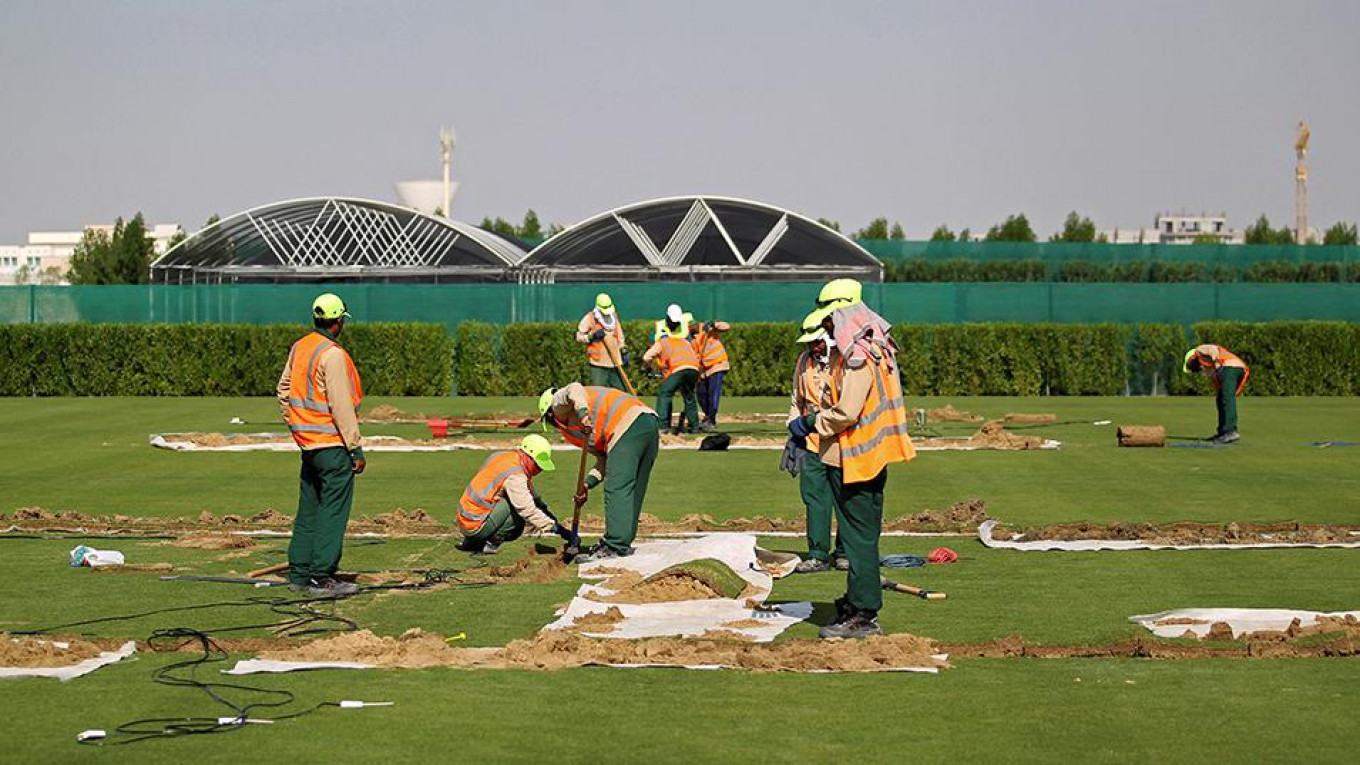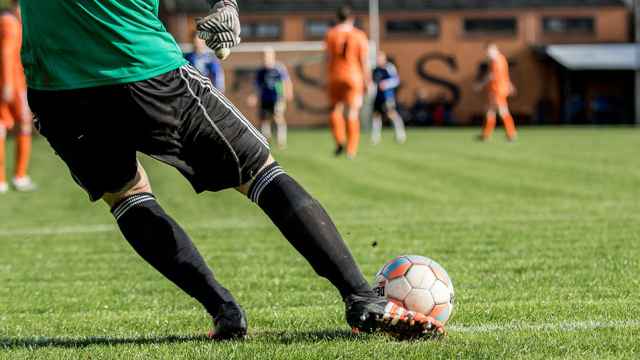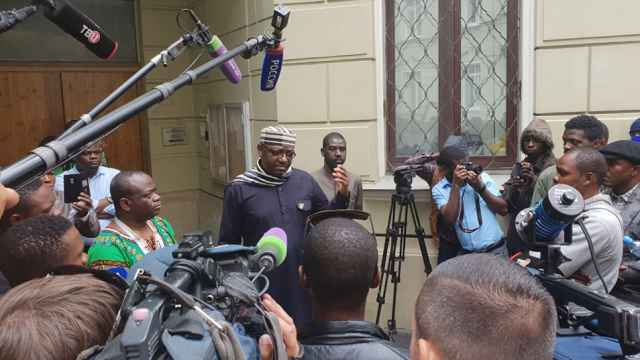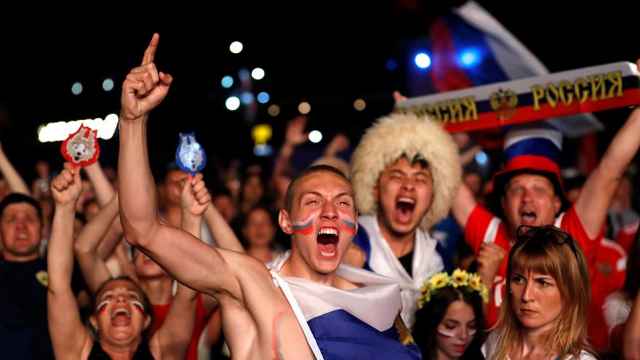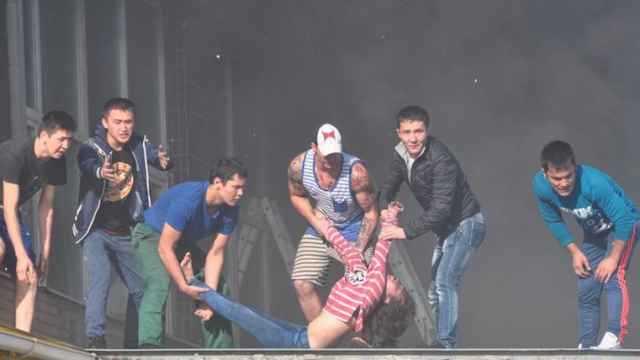Pressure to improve workers' rights and tackle forced labor in countries like Russia and Qatar that host major sporting events such as the World Cup must be sustained after such spectacles end and attention shifts elsewhere, campaigners said on Tuesday.
Trade unions and rights groups such as Human Rights Watch have documented labor exploitation, dangerous conditions and deaths of workers – mainly migrants – building stadiums and infrastructure in World Cup hosts Russia and Qatar.
Young migrant men are often lured by recruiters to World Cup building sites under false pretenses – only to find that the job is completely different and be denied a contract, stripped of their documents and underpaid or not paid at all, activists say.
While 2022 World Cup host Qatar last year pledged sweeping labor reforms, the world must ensure it maintains better treatment of migrant workers after the tournament ends, said labor rights researcher Mustafa Qadri.
"Once the preparation is done and the event has been delivered ... there is a key period to keep on the pressure," he told a British cross-party group of politicians that studies the links between sporting events, modern slavery and human rights.
"There is a need to continue improvements once an event is finished and attention has moved on to other things," said Qadri, who heads Equidem Research, a labor rights consultancy.
The United Nations' International Labour Organization (ILO) in November dropped a case against Qatar after the government introduced laws to protect migrant workers and pledged further reforms as well as technical cooperation with the U.N. agency.
Qatar vowed to introduce a minimum wage, allow monitoring of labor practices by inspectors, address restrictions on migrant workers' ability to change employers, and change rules stopping them leaving the nation without permission from their bosses.
These rules are part of the gas-rich state's "kafala" sponsorship system, which rights groups say leave Qatar's mainly Asian migrant workers, numbering about 2 million, open to abuse.
While welcoming Qatar's pledges, Amnesty International's Fabien Goa said they must be enshrined in law and enforced as more migrants are set to flock to the country for construction work on an "almost unprecedented scale before a World Cup".
"We have to ask how these events (World Cups) are structured ... in terms of timelines, planning, and lack of due diligence," said John Morrison, the chief executive of Britain's Institute for Human Rights and Business (IHRB), a think tank.
"Why do people have to die for these events? That is the question," he told the meeting at Britain's parliament.
Russia's World Cup is taking place in 11 cities and runs until July 15, with Qatar the next host in four years time.
A Message from The Moscow Times:
Dear readers,
We are facing unprecedented challenges. Russia's Prosecutor General's Office has designated The Moscow Times as an "undesirable" organization, criminalizing our work and putting our staff at risk of prosecution. This follows our earlier unjust labeling as a "foreign agent."
These actions are direct attempts to silence independent journalism in Russia. The authorities claim our work "discredits the decisions of the Russian leadership." We see things differently: we strive to provide accurate, unbiased reporting on Russia.
We, the journalists of The Moscow Times, refuse to be silenced. But to continue our work, we need your help.
Your support, no matter how small, makes a world of difference. If you can, please support us monthly starting from just $2. It's quick to set up, and every contribution makes a significant impact.
By supporting The Moscow Times, you're defending open, independent journalism in the face of repression. Thank you for standing with us.
Remind me later.


